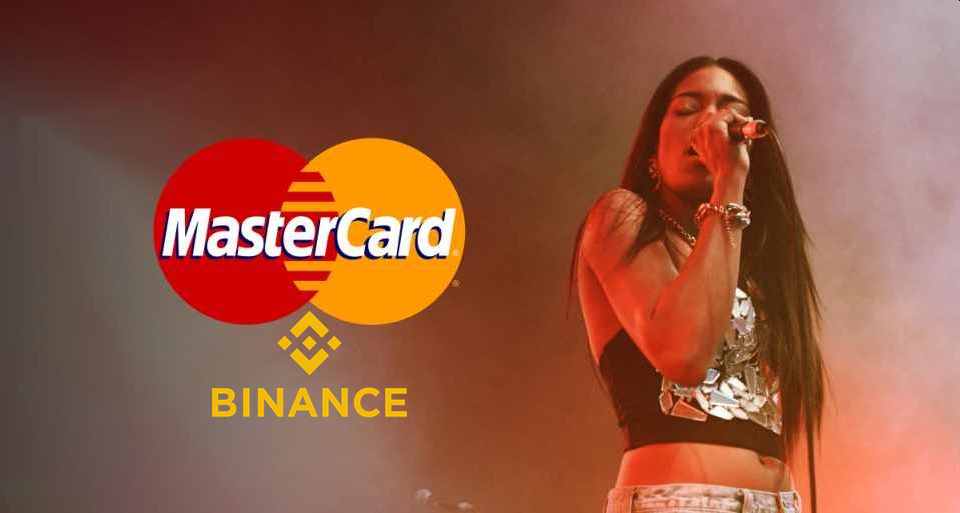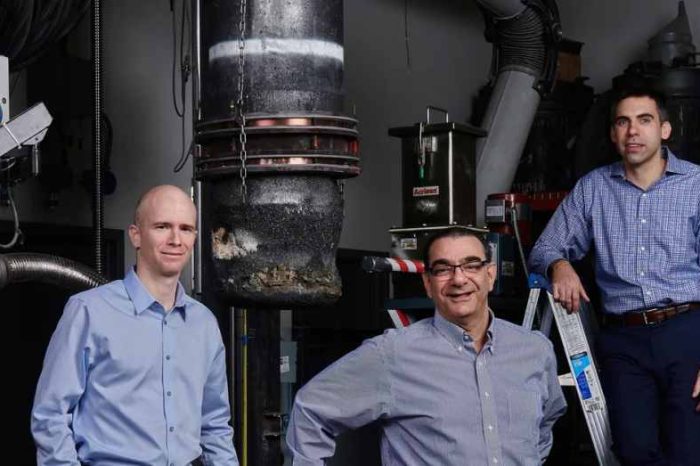Top tech startup news for Monday, January 30, 2023: Baidu, Binance, Mastercard, Prisms, Sorare, and Twitter

Good evening! Below are some of the top tech startup news stories for Monday, January 30, 2023.
Binance and Mastercard launch prepaid crypto cards in Brazil
Mastercard and the world’s largest crypto exchange Binance said on Monday they are launching a prepaid card in Brazil as part of the crypto giant’s efforts to “broaden the connection between traditional finance and crypto.” Brazil is Latin America’s largest economy
The two companies said the Binance Card is currently in beta testing and should be widely available in the next few weeks, making Brazil the second country in Latin America to receive the card after Argentina, which first received the card in April 2022.
Brazil is currently one of its ten-largest markets. Binance said that the new prepaid card will enable all existing and new Binance customers in the country to shop and pay bills with cryptocurrencies at merchants wherever Mastercard is accepted. By using the Binance Card, merchants will continue to receive fiat and the users pay in any cryptocurrency they choose across 14 supported currencies, the two companies said.

“Brazilians are eager to embrace crypto beyond an investment asset. Today is an exciting step in our crypto journey, which draws on the strengths of both our trusted global network and Binance’s infrastructure to support consumer choice in payments,”
Marcelo Tangioni, Mastercard Country Manager, Brazil said in a statement.
NFT fantasy soccer game startup Sorare signs a multi-year, multi-million deal with the Premier League
Sorare, a $4.3 billion NFT fantasy soccer game startup that recently a multi-year, has just signed a multi-year deal with the Premier League that will see the world’s top soccer league license official player cards. The deal was worth £30 million, according to a report from SkyNews.
According to the report, the English football’s top flight decided to reach a deal with Sorare after talks with a rival provider collapsed. As part of the deal, players of the game will be able to purchase and use official Premier League-licensed NFTs under the exclusive multi-year agreement.
“The agreement with Sorare is to provide so-called non-fungible tokens (NFTs), a fast-growing but volatile asset class which enables fans to ‘own’ an image of a famous artwork or sporting highlight,” SkyNews wrote.
We wrote about the Paris, France-based Sorare two years after the SoftBank-backed startup raised $680 million in funding at a $4.3 billion valuation to create the next sports entertainment giant leveraging NFTs. Sorare, which has 3 million users worldwide, is now the largest sports-based NFT platform by sales volume, according to NonFungible.com, a website that tracks NFT market data. It plans to open an office in the United States and expand into sports other than soccer.
Founded in 2018 by CEO Nicolas Julia and Adrien Montfort, Sorare is a global fantasy football game where players can buy, trade, and play with official digital cards. Sorare’s online game site provides a platform where players buy officially licensed cards representing soccer players and build teams that play against each other, with the outcome based on the players’ performance in real-life games.
China’s Baidu to launch a competitor to ChatGPT in March as AI race heats up
Chinese internet search giant Baidu is planning to launch its own AI chatbot service similar to OpenAI’s ChatGPT in March. Baidu plans to launch the service as a standalone application and gradually merge it into its search engine, said the person, who declined to be identified as the information is confidential, Reuters reported, citing a person familiar with the matter.
Chatbots are currently used in China in areas such as Digital Human as a Service (or DHaaS) and social interactions while ChatGPT performs better at more conversational and professional tasks, such as programming and content writing.
As we reported early this month, Baidu is already using chatbots to help companies “recruit” digital humans to usher in a new era of what’s called Digital Human as a Service (or DHaaS). These digital humans or “virtual people” are a blend of animation, sound tech, and machine learning that create digitized human beings who can sing and even interact on a live stream show.
Now, Baidu is planning to expand its focus and incorporate chatbot-generated results when users make search requests, instead of only links, the sources told Reuters. Baidu declined to comment on the news.
Elon Musk to build a Twitter payments system to compete with PayPal, report
When Elon Musk acquired Twitter last year for $44 billion, part of his vision back then was to turn Twitter into an “everything app.” It now appears that Musk is ready to turn that vision into a reality.
The Financial Times reported on Monday that Twitter is pushing forward its efforts to introduce payments across the social media platform. The report added that Esther Crawford, a high-ranking Twitter employee, “has started to map out the architecture needed to facilitate payments on the platform” alongside a small team of employees.
As part of Musk’s vision, the new payments system would use fiat currencies at first, but may further add crypto functionality later, The Financial Times reported, citing two people with familiarity with the company’s plans. The report also notes that Twitter has begun to apply for regulatory licenses to enter the US payments business, as well as crafting the infrastructure needed to support that.
In 1999 Musk sold Zip2 to the computer manufacturer Compaq for $307 million. He later used the proceeds to found an online financial services company, X.com, which later became PayPal, which was later acquired by the online auction eBay in 2002 for $1.5 billion.
Musk has said he wants Twitter to offer fintech services such as peer-to-peer transactions, savings accounts and debit cards, as part of a master plan to launch an “everything app” that incorporates messaging, payments, and commerce. In 1999, Musk co-founded X.com, one of the first online banks, which later became part of payments giant PayPal.
VR tech startup Prisms VR bags $12.5M in Series A funding led by Andreessen Horowitz to teach kids math using virtual reality
Today, Prisms VR (Prisms) announced today it has raised $12.5 million in a Series A funding round from Andreessen Horowitz to accelerate math literacy throughout the U.S. Prisms launched in 2021 to bring problem-driven, tactile and visual learning to the math classroom. Prisms is the first educational technology platform to leverage virtual reality (VR) to accelerate math proficiencies in U.S. schools.
Prisms plans to use the fresh cash infusion to accelerate the growth and adoption of its product and team. The funds will also go to expanding programs to more schools across the U.S. and product development in higher education and other subjects.
Prisms was founded in 2020 by an education expert and MIT engineer Anurupa Ganguly. Prisms is a virtual reality learning platform that teaches secondary math and science concepts spatially and steeped in real-world contexts, before building up to symbolic notation. Backed by the National Science Foundation and the National Institutes of Health, Prisms is the first spatial learning platform for K-12 STEM education, scaling a new way of learning core math and science that actualizes pedagogies that work best. Prisms recently raised new funding to grow its platform.
After completing her engineering and computer science study at MIT, Ganguly worked as a teacher with Teach for America, and a leading math and science education for the charter-school organization Success Academy in New York. Ganguly found firsthand that US schools were failing to engage most of their students when teaching math and science. Her experience at Success Academy later led her to start Prisms VR.

